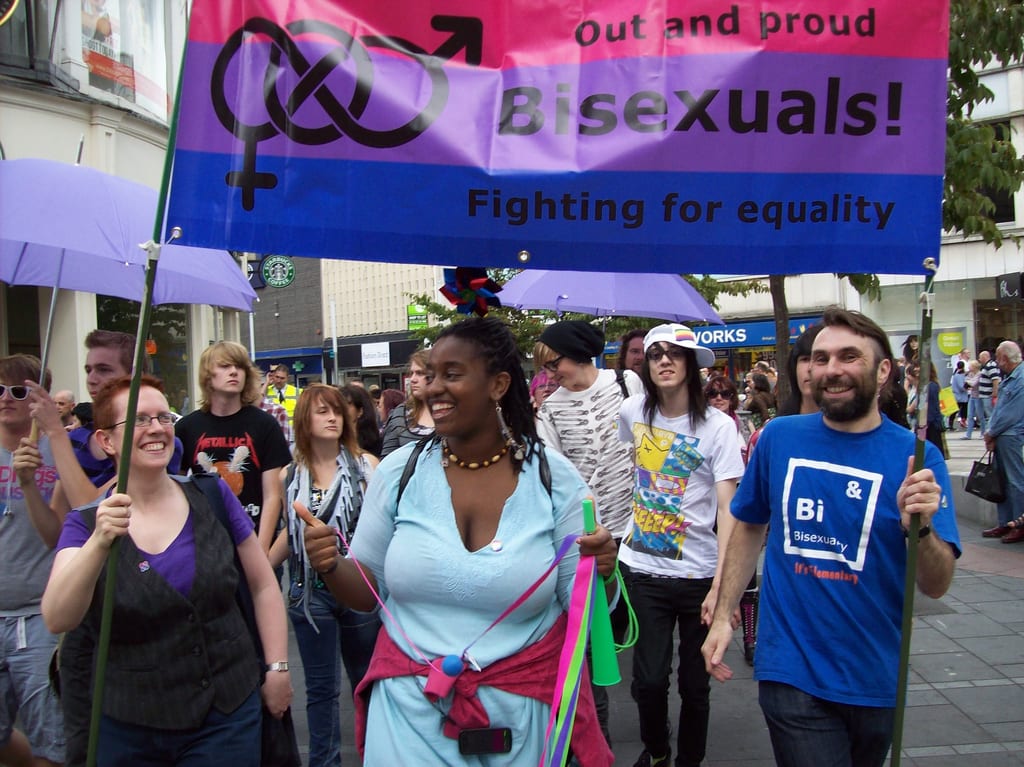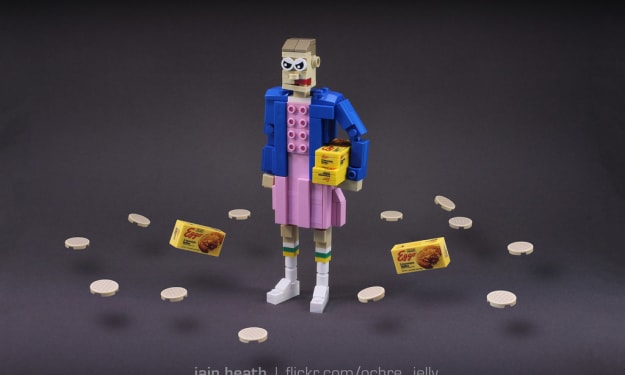What the 'B' in 'LGBT Really Stands For
Battling Baffling, Bogus Stereotypes

Here's the short version of my romantic history: I exclusively dated men until I was 20-years-old, when I fell in love one of my best female friends. She and I have now been together for nearly 11 years and are happily married. Despite the happy ending, suddenly realizing I wasn't straight was definitely a shock, and it took a lot of adjusting and reflecting to understand what it meant for me.
The ensuing self-introspection and journey to self-acceptance is a tale for another time, but in a world that loves labels, I embraced the term "bisexual." To be honest, it took me a while to adapt this label, because there are just SO many assumptions that go along with it. We'll get to that in a minute.
First, some research from 2011: bisexuals hold a slight majority in the LGBT+ community, and many more women than men identify this way. However, even within LGBT+-friendly spaces, bisexuals are drastically misunderstood and misrepresented.
From behind the bi curtain, here are a couple of things the B in LGBT really stands for... and a few things it definitely doesn't.
Does Stand For: Bisexual
Obvi, right? But maybe not. After all, one of the most common, harmful stereotypes about bisexuals I've heard both in person and in the media is that it's just a phase. Now, I'm sure everyone in the LGBT+ community has heard this at some point, but we bisexuals hear it even from our own.
Bisexuality is often seen as an experiment, something you have to try to get it out of your system and return to the "norm" of heterosexuality. Conversely, many see it as a pathway to coming out as gay: you just don't have the courage to call yourself truly gay, so you hide behind some halfway-there middle ground.
Unfortunately, this leads to another B-word that bisexuals often experience: being barred. Straight people don't date us because they're afraid we're just in the closet and don't want to admit it. Other members of the LGBT+ community won't date us because they're afraid we're just experimenting, and as soon as we have had our fun, we'll be leaving them to go back to Heteroland. Either way, there is a lot of loneliness and anxiety that goes along with dating as an open bisexual. And in a community that already struggles mightily with depression and suicide, this isolation is not only sad—it can be deadly.
So, let's talk about some B-words that are NOT associated with bisexuality, despite what stereotypes may say.
Does NOT Stand For: Bawdy
Or brazen. Or betrayal. So, the fact that bisexuals can be attracted to more than one gender automatically makes them cheaters, incapable of sticking with one person? This just isn’t true. People who identify as bi are just as loyal and capable of committed relationships as everyone else.
Listen, some people cheat. It's a fact. But if a person is a cheater, it's not because they're bi. I mean... does that mean that straight people never cheat on their partners?
Bisexuals may be physically and romantically attracted to more than one type of person, but they are fully capable of falling in love and committing to one person.
Does NOT Stand For: Backing Down
So let's talk about why all of this matters. Coming to terms with sexuality is a long, often difficult, but ultimately rewarding journey for many of us. Many in the LGBT+ community face discrimination among their own family members and friends, and that is nothing compared to the hatred and homophobia that still abounds in societies and cultures everywhere in the world.
So if someone has risen above all of that enough to embrace their authentic self and to celebrate their sexuality rather than trying to hide it, what right has anyone to tell them they are just in a phase, they are incapable of love, or they are unworthy of trust? Or even: that they don't exist.
So here's a novel concept: why don't we just believe people when they tell us who and what they are? Sure, you can see that I'm married to a woman. But if I tell you I'm bi, why should anyone need to express an opinion at all on the matter? My definition of my sexuality has nothing to do with anyone else, and everything to do with my personal comfort in my corner of the world. As decent human beings, it's up to you to respect that in each other.






Comments
There are no comments for this story
Be the first to respond and start the conversation.